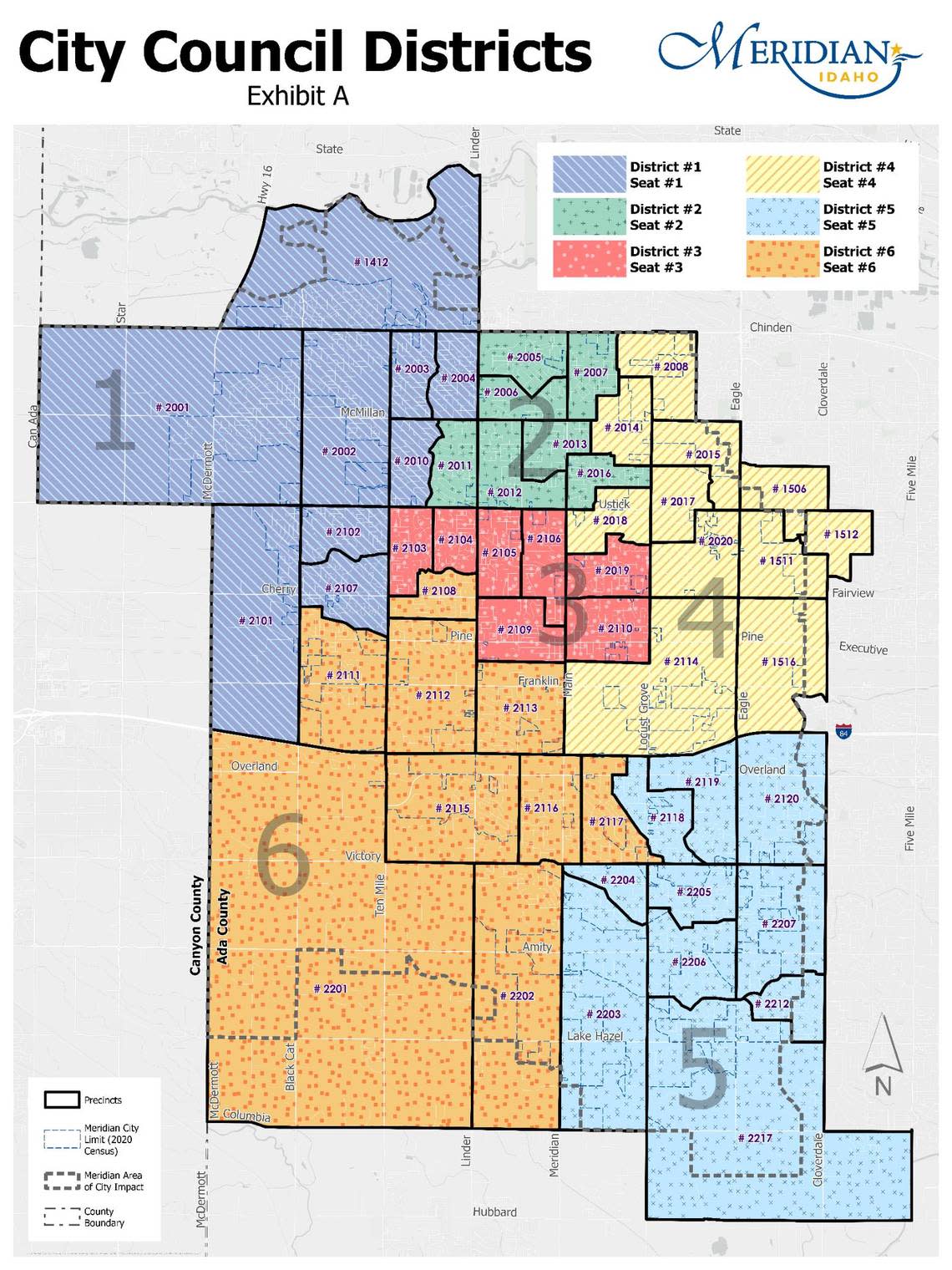Oops. What Meridian missed when it tried to comply with Idaho’s new council-district law
New council districts were drawn and approved by the Meridian City Council, but no one noticed at the time that something was amiss.
The Idaho Legislature in 2020 passed a law that required cities with populations exceeding 100,000 to elect council members by district rather than at-large. Boise had already exceeded 100,000 residents, so its council complied in time for the 2021 municipal election.
But Meridian decided it had to wait for the 2020 census results to verify that the city passed that population threshold. The census results did not come out in time for the 2021 election, so Meridian stuck with at-large voting one last time.
The Meridian council appointed a redistricting committee that held five meetings and two public hearings and reviewed six drafts of the district map. To follow federal and state law and local ordinance, the districts cannot vary in population by 10% or more.
But there was a problem. No one thought of how the city would comply with the law by 2023 when three council members were elected at large in November to four-year terms starting in January 2022 and ending in January 2026.

Would only half of the council represent districts after the 2023 election? Would the three elected in 2021 be forced to run again in 2023 for seats in districts, instead of filling their full four-year terms as at-large members?
The independent committee that drew the districts was instructed by the mayor not to consider existing council members’ home addresses. They weren’t supposed to try to prevent two incumbents from winding up in the same district and facing the unpleasant possibility of running against one another in the next election.
That may have kept the process independent from elected officials, but it still complicated future re-election possibilities for council members who won races last November and were sworn in this year.
Those three are Joe Borton, Treg Bernt and Luke Cavener. Borton was elected to Seat 2, Bernt to Seat 4 and Cavener to Seat 6.
The citizens committee, meanwhile, came up with its own Seats 1 through 6, each representing a specific district. In Meridian, races for Seats 1, 3 and 5 are held in one election and for Seats 2, 4 and 6 in the next.
When Boise drew its new City Council districts, it ran into a similar problem. The city drew its district map before the 2021 November election, and it had only three seats on the ballot, all for two-year terms representing new districts, instead of the standard four years. The other three council members would complete their full terms, and then all six seats would be on the ballot in 2023.
Meridian didn’t like Boise’s approach. Instead, Mayor Robert Simison proposed swapping the numbers of council Seats 1 and 2 to match with Strader’s and Borton’s residencies in the new districts with those numbers.
While Bernt and Cavener have seat numbers that correspond with the districts they would live in, 4 and 6, Borton does not. He lives in what would become District 1, not District 2, the one whose number matches the seat he holds now. So Simison proposed swapping Borton’s Seat 2 with Strader’s Seat 1, because Borton could then serve the rest of his term there.
The swap wouldn’t hurt Strader, because if she ran again in 2023 and won, she’d serve as the District 2 council member, because she lives in the proposed District 2.
Bill Nary, Meridian city attorney, said changing the seat numbers would be less disruptive than changing the terms and having every seat up for election at the same time, as Boise will in 2023.
“They’re gonna have six people running in one election, which seems a lot more disruptive than really what our ordinance would say,” Nary said told the Idaho Statesman by phone.
The council must approve this change as a separate ordinance. If it does, Seats 2, 3 and 5 would be on the 2023 ballot as district seats. In the 2025 election, Seats 1, 4 and 6 would be.
The City Council is scheduled to have two public hearings on the ordinance before approving it. The first hearing is scheduled for 6 p.m. Tuesday, July 26, at City Hall. A copy of the proposed ordinance is on the council agenda.
Legislature may force Boise, Meridian voters to choose City Council members by district
Meridian mayor ‘not comfortable’ spending on affordable housing. What happened next





